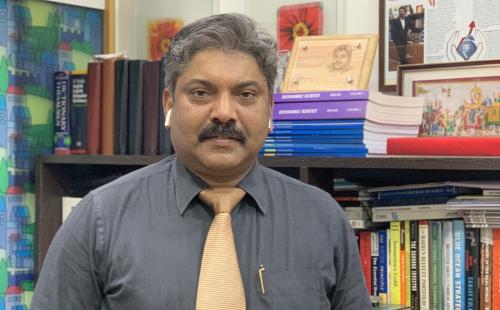Unbiased advice
He believes that getting access to different financial products or execution of the trade are no more the big challenges of today for any investor. “However,” he says, what is crucial is getting an unbiased financial road map drawn up based on individual’s aspirations. Accordingly, at Impetus, we encourage investors to develop good investing habits which in turn help them to overcome two major hurdles in any investment decisions, namely greed and fear.”
“At Impetus,” says P R Dilip, “we make a distinction as we correctly understand the connections between the financial and emotional well-being of every individual. We also recognise the fact that, as the financial goals of each individual are different from another, the financial planning for each individual also got to be different and personalised. Investors would be ill-served if our focus is on individual investments rather than their life goals. Moreover, general assumptions and decisions taken with peripheral evaluation about any investment product or asset class is equivalent to gambling. The merits and demerits of each investment product/asset class need to be evaluated only after arriving at a conclusion about what is suitable for an individual.”
Holistic approach
P R Dilip believes that this holistic approach must be adopted in planning the investments for each client. “Educating the investor about the needs-based financial planning rather than trends-based investments is most essential,” he reports. “That is because what is in trend today may not help an investor to achieve his/her financial or life goals going forward. Accordingly, the precise actual needs or financial goals of the investor need to be ascertained as the first step. Then, meticulous evaluation of the resources, aspirations and risk appetite of the individual should be made before making any major investment decisions.”
He adds that one has to remember that emotional, personal and spiritual factors also need to be taken into consideration along with financial resources while making financial planning for any individual.
Balance is essential
“Financial well-being alone cannot make an individual happy unless it is matching and coinciding with other aspirations of that individual,” he states. “Investors so often demand performance benchmark related to their investments, but very few demand or even look at the performance benchmark related to the successful achievement of their overall planning objectives. An investor with proper financial planning would hardly be worried about the volatilities of the markets as the well-thought-out strategies would enable a smooth sailing in troubled waters.”
Dilip observes that the process of discovering the suitability of investment products/asset classes for an individual is nothing but asset allocation based on detailed client profiling. “It is an extensive process which enables both the investor and the wealth manager to understand the financial gerontology of that investor,” he says. “And we need to bear in mind that wealth management is an ongoing process until the investor achieves his/her financial goals. It requires periodical review of the portfolio of investments and fine-tuning of asset allocation based on the changes in the investor’s profile or overall environment in the world of investments.”

